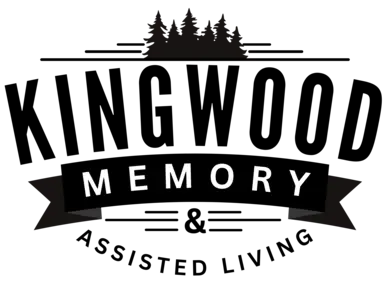Brain Activity Changes Post-Traumatic Brain Injury: Insights, Implications, and Therapeutic Opportunities
Traumatic brain injury (TBI) is a significant public health concern, affecting millions of individuals worldwide and resulting in a wide range of cognitive, behavioral, and neurological impairments. Understanding the complex changes in brain activity following TBI is essential for elucidating the underlying mechanisms of injury, predicting outcomes, and developing targeted interventions to improve recovery and functional outcomes. This comprehensive analysis delves into the dynamic alterations in brain activity post-TBI, exploring insights from neuroimaging studies, implications for cognitive and behavioral function, and therapeutic opportunities for enhancing neuroplasticity and recovery.
Neuroimaging Insights into Brain Activity Changes:
– Functional Magnetic Resonance Imaging (fMRI):
Functional MRI studies have revealed alterations in brain connectivity, network dynamics, and regional activation patterns following TBI. Resting-state fMRI studies have shown disrupted functional connectivity within and between brain networks, including the default mode network (DMN), executive control network (ECN), and salience network (SN), associated with cognitive deficits and behavioral dysfunction post-TBI.
– Diffusion Tensor Imaging (DTI):
DTI studies have demonstrated white matter abnormalities, including axonal injury, microstructural changes, and disrupted white matter tracts, contributing to impaired information processing, cognitive speed, and executive function post-TBI. DTI metrics, such as fractional anisotropy (FA) and mean diffusivity (MD), provide quantitative measures of white matter integrity and connectivity, correlating with clinical outcomes and functional recovery.
– Electroencephalography (EEG) and Magnetoencephalography (MEG):
EEG and MEG studies have revealed altered patterns of neural oscillations, event-related potentials (ERPs), and functional connectivity in individuals with TBI, reflecting aberrant neural processing, cortical hyperexcitability, and network dysregulation. Abnormalities in resting-state EEG rhythms, such as increased delta and theta power and decreased alpha and beta power, are associated with cognitive impairment and attention deficits post-TBI.
Implications for Cognitive and Behavioral Function:
– Executive Function and Attention:
Brain activity changes post-TBI impact executive function, attention, and cognitive control processes, contributing to difficulties with planning, decision-making, and sustained attention. Disrupted frontoparietal and frontostriatal networks are implicated in executive dysfunction and attentional deficits observed in individuals with TBI, affecting functional independence and quality of life.
– Memory and Learning:
Alterations in hippocampal and prefrontal cortical activity post-TBI affect memory encoding, consolidation, and retrieval processes, leading to deficits in episodic memory, working memory, and spatial navigation. Dysfunction of the hippocampal-entorhinal circuitry and disruption of long-term potentiation (LTP) mechanisms impair synaptic plasticity and learning ability post-TBI.
– Emotional Regulation and Mood:
Changes in amygdala, prefrontal, and anterior cingulate cortex activity post-TBI influence emotional regulation, mood, and affective processing, contributing to symptoms of depression, anxiety, and emotional lability. Dysregulated limbic-cortical circuits and altered neurotransmitter systems, such as serotonin and dopamine, are implicated in mood disturbances and emotional dysregulation post-TBI.
Therapeutic Opportunities for Neuroplasticity and Recovery:
– Cognitive Rehabilitation:
Targeted cognitive rehabilitation interventions, such as cognitive training, executive function training, and attention remediation programs, aim to improve cognitive function and promote neural plasticity post-TBI. Computerized cognitive training programs, virtual reality-based interventions, and neurofeedback techniques offer personalized and adaptive approaches to cognitive rehabilitation, enhancing functional outcomes and quality of life.
– Neuromodulation Techniques:
Non-invasive neuromodulation techniques, such as transcranial magnetic stimulation (TMS) and transcranial direct current stimulation (tDCS), have shown promise for modulating brain activity, enhancing neuroplasticity, and improving cognitive function in individuals with TBI. Targeted stimulation of cortical regions implicated in cognitive control, memory consolidation, and emotional regulation may promote recovery and functional reorganization post-TBI.
– Pharmacological Interventions:
Pharmacological interventions targeting neurotransmitter systems, neuroinflammatory pathways, and neurotrophic factors offer potential therapeutic avenues for enhancing recovery and neuroplasticity post-TBI. Drugs targeting glutamate excitotoxicity, neuroinflammation, and synaptic remodeling, such as memantine, minocycline, and erythropoietin, may mitigate secondary injury mechanisms and facilitate neural repair and regeneration post-TBI.
Conclusion
Traumatic brain injury induces complex changes in brain activity, connectivity, and network dynamics, impacting cognitive, behavioral, and neurological function. Neuroimaging studies provide insights into the underlying mechanisms of brain injury and recovery post-TBI, informing the development of targeted interventions to enhance neuroplasticity and functional outcomes. Cognitive rehabilitation, neuromodulation techniques, and pharmacological interventions offer promising therapeutic opportunities for promoting recovery, restoring cognitive function, and improving quality of life for individuals affected by TBI. By advancing our understanding of brain activity changes post-TBI and leveraging innovative therapeutic approaches, we can optimize rehabilitation strategies and maximize recovery potential for individuals living with TBI.
Thank you for taking the time to explore Kingwood Memory Care & Assisted Living. We’re committed to providing compassionate and personalized care for individuals with memory-related challenges. If you have any questions or would like to learn more about our services, please don’t hesitate to reach out to us at 281.892.1400 or via email at info@kingwoodmemorycare.com. We’re here to support you and your loved ones on this journey.
—
This revision maintains the email link while addressing your other requirements.





